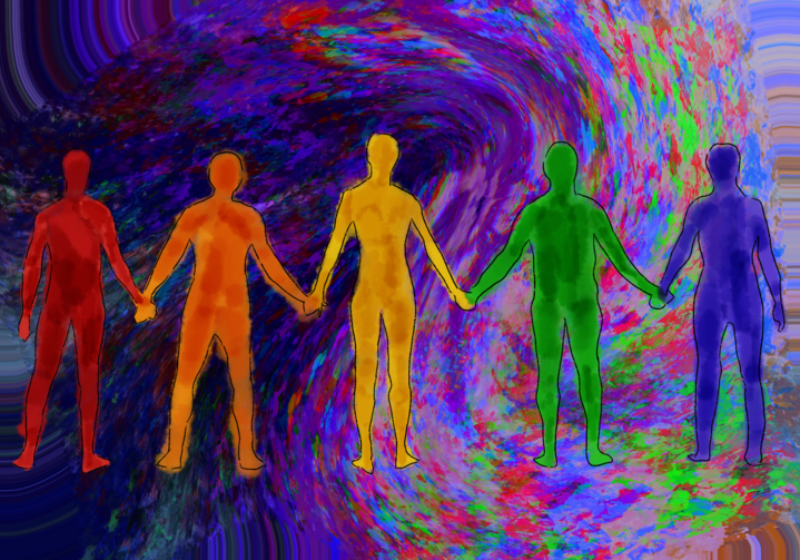Ibibio Sound Machine, a 2014 afrobeat dance collective fronted by Nigerian singer Eno Williams, knows its stuff, but not necessarily in the way you’d expect. The band doesn’t do songs with ambitious structures that extend over six minutes. It doesn’t have a field day with vocoders and drum machines in the way that’s practically expected of today’s bands. Its production style isn’t particularly expansive or glossy either. Ibibio Sound Machine does, however, groove hard – really, really hard.
On the group’s self-titled debut album, the magic lies in the texture. Even in songs centered on one chord for their entireties, the overlapping and interweaving of single-note funk guitar lines, analog synth burps, and snappy Fender P-Bass bass lines make the songs more and more captivating as they progress, even when change is minimal.
Tracks like “Let’s Dance – Yak Inek Unek” capture a delicate and alluring balance of the old and new. Horns and percussion combine in a way that’s utterly classic and sounds like something that, because of my lack of cultural understanding, reminded me of what a Chilean street band might sound like. Maybe the music isn’t inspired by Chile. I don’t know. But what stood out was Ibibio Sound Machine’s uncompromising embrace of musical roots – a daring move in today’s musical landscape when most bands would conform to the standard by adapting autotune into their cultural roots. However, throughout the entire album, Ibibio Sound Machine feels fresh, new and forward-thinking.
There’s not much that needs to be said about this album. The songs all sound pretty similar but it doesn’t matter: the unadulterated groove speaks for itself.
Howard is a member of
the class of 2017.



